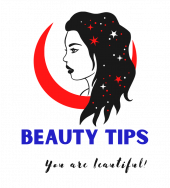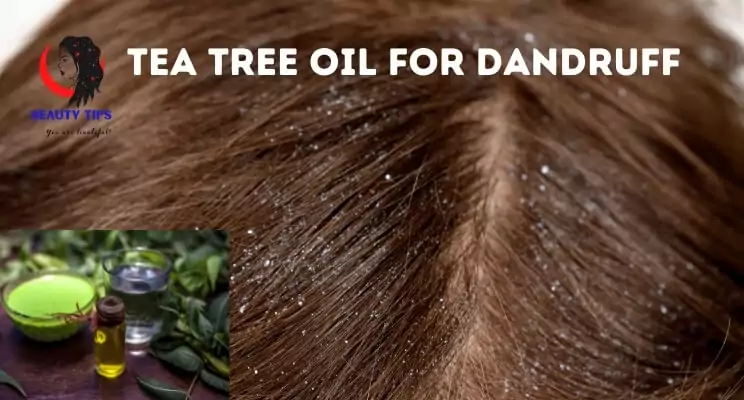Article Contents
Overview
We often get irritated and helpless because of the persistent dandruff.
Tea tree oil for dandruff really a great option to fight and control the hair dandruff.
Melaleuca alternifolia is a native Australian tree that produces tea tree oil (melaleuca oils).
Melaleuca is the original source of Tea Tree oil.
Tea tree oil has the properties like antibacterial, antiviral, and antifungal.
As an essential oil It’s useful for treating head lice, minor wounds, and controlling dandruff.
Tea tree oil is available commercially in different strengths. It also comes as a strong volatile oil.
You can use tea tree oil mixing with carrier oils and topically also.
You can find tea tree oil an active ingredient in various products like shampoo, shower gel, and massage oil. Some people find the camphor-like smell relaxing.
What is Dandruff?
Dandruff, which is a scalp condition, is characterized by dry, flaky, dead skin. Sometimes itchy skin is also a sign of dandruff. Dandruff can have many causes. These include:
- Dry skin and hair
- Oily, itchy skin
- Poor hygiene
- A fungus called Malassezia
- Contact dermatitis
Tea tree oil might be effective in alleviating dandruff-related problems due to its moisturizing and antifungal attributes.
Benefits of tea tree oil for dandruff
1. Tea Tree Oil Reduces Overgrowth Yeast on the Scalp
Malassezia can be described as a yeast-like fungus. It is found in small quantities on every person’s scalp.
Some people may have Malassezia that has become excessively large. It could be due to bad hygiene habits (e.g., not shampooing enough) or a medical condition. Dandruff may occur in any of these situations.
A study showed that shampoo containing 5 % tea tree oil could reduce dandruff from the yeast Pityrosporum Ovale (Malassezia). Participants used tea tree oil shampoo for one month or a placebo. The user of Tea tree oil shampoo saw a 41% decrease in the severity of dandruff.
2. Tea Tree Oil Reduces Itching and Other Dandruff Symptoms
Tea tree oil could help to reduce itchiness, redness, and greasiness that are often associated with dandruff. In 2006, a study showed that shampoo containing 5 percent tea tree oil was more effective than shampoo containing a placebo. Recent research has shown that tea tree oil shampoo reduces microbial growth by 78 percent.
3. Tea Tree Oil Tames Dandruff
Dandruff shampoos also contain tea tree oil. It has antibacterial and antifungal properties. Hadley King M.D., a board-certified dermatologist, previously spoke to us about dandruff treatment.
One study revealed that using shampoo with tea tree oil can control mild to moderate amounts of dandruff. A four-week period of oil use resulted in a 41% improvement (less itching, less scaliness, etc.). The placebo group showed an improvement of 11%.
Taz Bhatia M.D., an integrative physician and member of the MBG Collective, suggests adding peppermint oil for maximum relief.
You can use it to treat itchy scalps and kill Candida.
4. Tea Tree Oil Prevents Buildup
Hair is susceptible to buildup from oil, dirt, products, pollution, and so on. Inflammation triggers inflammation and clogs the follicles. Can it also cause pain in that area (has your hair ever been “hurt?”? It’s called buildup.
You may find that buildup can sometimes get to a point where a simple shampoo is not enough.
Gentle shampoos are great for everyday use but not good at handling thick buildup.
There are two options: a clarifying shampoo or one with a tea tree. The essentials oil (EO) is incredibly efficient at dissolving and removing oils and other debris. EO’s anti-inflammatory qualities can reduce any irritation that may be caused by oil buildup
5. Tea Tree Oil Aids in Hair Growth
Inflammation and buildup of hair follicles can cause severe damage. Buildup leads to hair loss if it continues for too long. Tea tree oil is known to keep your scalp clean and can help prevent shedding from inflammation.
Young Living’s global training director Leslie Lewis explained how tea tree extracts could cleanse and purify the hair. To massage my scalp, I use it with coconut oil and rosemary. (Also, a scalp massage is a must as studies have shown it beneficial for hair growth. While you’re shampooing, use your tea tree oil to massage the scalp.
6. Tea Tree Oil Keeps Strands Shiny
A second problem that buildup can lead to is dull hair. Dirt, mattifying chemicals, and pollution can cause hair to lose its natural shine. Additionally, hair can absorb fewer nutrients when it’s covered with debris. It’s similar to how you don’t use makeup as a top coat on your hair because the ingredients cannot reach the skin.
7. Tea Tree Oil Helps Scalp Acne
It’s not a good thing, we know. But you can get breakouts or pimples wherever you have pores. You can easily get pimples all over your scalp. They are most common near the hairline due to two reasons.
Your makeup and face cream may not be washed properly and remain on your scalp. And the hairline is often neglected when shampooing leaving natural hair oil on the scalp.
You can use tea tree oil to treat acne and other skin conditions. Again, this is due to its antibacterial, anti-inflammatory, and other properties. A double-blind placebo-controlled trial found that a blend of 5% tea tree oil and lemongrass was an effective treatment for moderate to severe acne.
Skincare has had a long history of monopoly over fun ingredients. These include serums bursting with fancy actives, oils packed with potent actives, and treatments loaded with essential oil and acids. Tea tree oil, a natural skin treatment ingredient, is used in many face washes, treatments for acne, and other products. It’s most often used as an astringent or acne-tamer.
How to use tea tree oil for dandruff?
It is also, if not already, a major ingredient for hair and scalp. The essential oil is extracted using the evergreen Melaleuca alternifolia trees. This oil has been around for a while. Some people may not be familiar with its many roles. Here’s a look at tea tree oil and how you can use it to treat your hair and scalp.
There are many ways to use tea tree oil for dandruff. These include:
- A shampoo that contains 5 percent tea-tree oil is recommended.
- Add 5-10 drops of tea tree essential oil into your current shampoo bottle. Mix well. Massage the scalp gently and rinse well.
- Make your own tea tree oil shampoo. This recipe also uses coconut milk, olive oil, vitamin E, coconut oil, filtered water, baking soda, and tea tree oil.
Warnings:
Side Effects and Risks
Poison Control warns that tea tree oil is poisonous and should not ever be swallowed.
When you apply tea tree oil to your scalp, make sure not to get it in your eyes. If any tea tree oil does get into your eyes, flush them immediately using warm water. Call your doctor immediately if they become reddened or irritated.
Tea tree oil is not recommended to be applied at its maximum strength directly to the skin or scalp. It can cause irritation and itching.
According to an Australian study, only a few people are allergic to tea tree oil. Before you apply essential oils, or any product containing tea trees oil, to your scalp, make sure you do patch testing. An allergy to tea tree oil is a common condition that affects around 1.4 percent.
It is important not to apply EOs directly onto the skin. It would be best if you first diluted them into a carrier.
Jojoba oil is often recommended as it is thinner and doesn’t clog pores. It is advised against leaving essential oils on the scalp or hair for longer time, as it can harden the hair’s cuticles.
You can apply the essential oil to your scalp or hair for a few seconds and then wash it off by shampooing and rinsing. You absorb the benefits, but you also rinse out any residue.
Or you can use a shampoo that contains the essential oil (EO) to do the job. If you choose this route, only use it one to two times per week. It’s not strong enough to be used every day since it is clarifying.
When to see your doctor
While dandruff does not typically indicate a serious condition, it could mask another condition with similar symptoms. Talk to your doctor if you notice the following symptoms:
- It is not responsive to over-the-counter solutions, such as anti-dandruff shampoos or frequent shampooing.
- Itching scalp that is uncontrollable and interfering with your daily activities or life every day.
- If your scalp is swollen and red or has open sores.
The Takeaway
Tea tree oil for hair and scalp can make a huge difference. This oil can help with everything from preventing dandruff and pimples to making your hair shiny and nourished. Consider the essential oil (EO) if any of these issues concern you. Dandruff is common and not serious. Tea tree oil, especially if it is caused by a yeast-like fungus called Malassezia, may effectively reduce dandruff. You shouldn’t use tea tree essential oils at their full strength. Before using, Please apply to a small area.


